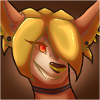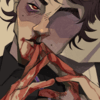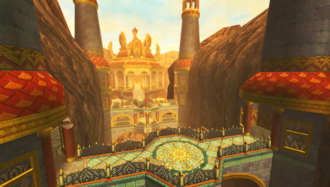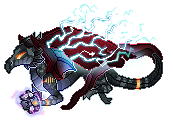Re: Plumerian #251
Reserve, maybe. I will most likely not have the time to enter but I do want to see the winning form!
I'm not really active here anymore. Please don't ask for my pets or OCs!
-

The Pirate Dragon - Posts: 5374
- Joined: Thu Jul 05, 2012 5:07 am
- My pets
- My items
- My wishlist
- My gallery
- My scenes
- My dressups
- Trade with me
-

taichi - Posts: 3259
- Joined: Tue Jul 05, 2011 5:45 am
- My pets
- My items
- My wishlist
- My gallery
- My scenes
- My dressups
- Trade with me
Re: Plumerian #251
Username:
Name:
Gender:
Name:
Gender:
Last edited by bullie on Mon Aug 11, 2014 11:00 am, edited 1 time in total.
-

bullie - Posts: 7525
- Joined: Thu Aug 15, 2013 10:34 am
- My pets
- My items
- My wishlist
- My gallery
- My scenes
- My dressups
- Trade with me
Re: Plumerian #251
About the Adopter wrote:Username:BecNessMonster
About me: Hello I am BecNessMonster, I am a Active user on this site who rps alot and loves to draw, I own many characters that i love and give a ton of attention to and write storys about. I Currently Own 0 Plumies and I would love to make this Girl my First!
Why I want her:I want her because I love the theme, I Personally am A Native American, and I enjoy looking at Tribal Themes. I Felt a Connection when I saw her and I am just in love with her.
Basic Info wrote: Name:Reyna
Gender: Female
Personality: Sassy, very much a leader and has a Fiery personality that shows greatly in battle.
Occupation: She is a Warrior who guards who ever she is hired by
Birthday: May.28th
Age:21
Height: she is a tiny bit taller then most
Body Type: She has a strong build but almost fragile look to her
Sexuality: Strait
Favorite's wrote:Sport: Jousting
Hobby: Reading
Food:Steak
Drink: Iced tea
Season: Fall
Holiday: Halloween
Animal: bear
Movie: lord of the rings
Color: Blue
Number: 1
Goals:
Fears:
Past
Regrets
wish's
likes
dislikes
beliefs
-

BecNessMonster - Posts: 21505
- Joined: Tue Apr 30, 2013 10:14 am
- My pets
- My items
- My wishlist
- My gallery
- My scenes
- My dressups
- Trade with me
Re: Plumerian #251




╔══════════╗
Username: *Watermelon Love*
Name: Tyce
Gender: Male
╚══════════╝

Despite that girly look, Tyce is a male. Always grumpy, he would snap at plumerians that called him a girl. Tyce get angry easily, sometimes he will rush home, go to his room and wear his guy hat, satchel, and glasses. Without these things, other plumerians would think he is a girl. Sometimes, he wishes he doesnt have his hair. Since people kept thinking he was a girl, he got sour, rude, and snotty to those around him. But when Tyce is at home, he is a different plumie. He will study, and read about old times, artifacts, old buildings, and anything ancient or history related.

Last edited by DelightfulMelon on Tue Aug 12, 2014 6:15 am, edited 4 times in total.
-

DelightfulMelon - Posts: 5274
- Joined: Thu Apr 04, 2013 1:34 pm
- My pets
- My items
- My wishlist
- My gallery
- My scenes
- My dressups
- Trade with me
Carly

╭..............................................╮
name Carly
age sixteen
gender female
occupation violinist
╰..............................................╯
name Carly
age sixteen
gender female
occupation violinist
╰..............................................╯
╭..............................................╮
feral height 3'4''
anthro height 5'7''
feral weight 54 pounds
anthro weight 112 pounds
╰..............................................╯
feral height 3'4''
anthro height 5'7''
feral weight 54 pounds
anthro weight 112 pounds
╰..............................................╯
╭..............................................╮
birthday April 11
birth stone diamond
zodiac aries
sexuality bisexual
╰..............................................╯
birthday April 11
birth stone diamond
zodiac aries
sexuality bisexual
╰..............................................╯
● ● ● ● ● ● ● ● ● ● ● ● ● ● ● ● ● ● ● ● ● ● ● ● ● ● ● ● ● ● ● ● ● ● ● ● ● ● ● ● ● ●
╭............................................................╮

╰...........................................................╯

╰...........................................................╯
Despite being unable to read between the lines, Carly always means well, even if you can't tell. All she wants to do is make her friends happy. Even though she is a total sweetheart, Carly is a bit of a rebel, but, as she puts it, "I do not rebel blindly, only with a reason", meaning that she won't go against a certain plumerian, idea, or situation unless she has a real reason for it. Carly looks down on bullies, but still tries to befriend them. Not because she hopes they won't pick on er, but so they'll begin to become better people.
Carly enjoys the feeling that she has made a difference in someones life, doesn't everyone? But Carly is very insecure, and she needs constant reassurance from friends that she is doing the right thing, and that they like her for who she is. Carly always worries about what people think about her, ad if they ell her that they don't like something about her, she'll try to change it. Although Carly never admits it to anyone, including herself, she wants to be perfect, even though she knows it's impossible. She wants to fit in, and to be everyone's friend.
╭..............................................╮

╰..............................................╯

╰..............................................╯
[ 1 year later ] "I don't wanna go!", moaned a six year old Carly. "It'll be fine!", the man said. "How do you know, George?", the small plumerian demanded. George sighed, but said nothing. Finally, they arrived in front of a large old looking house, and Carly looked up at George skeptically, "My foster home is in the middle of nowhere?", she demanded. George tried not to, but he smiled, "You're a sassy little six year old, aren't ya?", Carly giggled, ringing the door bell.
A woman came to the door, smiling down at Carly, "Welcome!", she said happily, motioning for them to come in. Carly did, and looked around the house, and then back at the lady, who shook her hand. "I'm Miranda", she said. "I'm Carly", Carly said. Still smiling the woman turned around, shouting, "Boys!" Soon, two little boys had emerged from a room, toy trucks in their hands.
"This is Carly", Miranda said warmly, and the boys looked in the direction of her. Carly waved. Soon Carly got settled I, and found out that she really enjoyed it at her foster home, and sometimes even wished that they could adopt her. Over several years, Carly matured, and got closer to Miranda and the twins, until one night.
Everyone was quiet except for Carly, who kept talking and talking, not even noticing that no one was responding. "Carly", Miranda broke in. "Yeah?" Miranda looked pained, as if she didn't want to tell Carly. "Yeah?", she repeated again. "There is a family that would like to adopt you, we will meet with them in the park tomorrow.
Carly was taken aback, even though she knew that this would happen eventually. "Who are they?", she asked. "A nice family, a mother and a father, they have one daughter already that they adopted. Carly tried to convince herself that that sounded nice, but couldn't. She didn't want to leave Miranda and the twins, but it wasn't her choice.
The day of the interview, Carly walked over to the park with Miranda and the twins, and instantly spotted the family, walking over to them. The meeting went smoothly, and Carly found out that she really liked the family. Not as much as she liked Miranda, of course, but she wasn't as depressed about the idea of being adopted by them.
Everything after that went well, and before she knew it, Carly was saying goodbye to Miranda and the twins, and getting in the car to go to her new home. Carly settled in quickly and got used to her new family, even though she never got used to calling them Mom and Dad. Every once in a while Carly goes back to visit the twins and Miranda, but she wasn't miserable at her new home. She liked it.
╭..............................................╮

╰..............................................╯

╰..............................................╯
Carly enjoys listening to all genres of music, and doesn't really have a favorite. She enjoys anything from classical to heavy metal, and can be found listening to all of them.
● ● ● ● ● ● ● ● ● ● ● ● ● ● ● ● ● ● ● ● ● ● ● ● ● ● ● ● ● ● ● ● ● ● ● ● ● ● ● ● ● ●

l I k e s wrote:Music
Violin
Cool breeze
Swimming (for fun)
Storms
Rain
Food
Dr. Pepper
Tubing
d I s l I k e s wrote:Mirrors
Mean Plumerians
Veggies
Cliques
mustard
Global Warming
Doctors
Competitions
Bullies

Do you have any quirks?
Yep, a lot of the time I dot my i's with hearts. I'm not really sure why, I started and now it's a habit. I also have a necklace that my birth mother gave me when I was little that I rub when I'm nervous.
What is your fatal flaw
Well, I'm not really sure. Sometimes I think it's that I worry too much about what others think of me.
What about you is heroic?
I dunno, maybe that I try to become friends with everyone..?
What about you is social? What do you like about people?
I consider myself a social butterfly, so all of me, I guess. I like almost everything about people, really one personality trait we all share.
Why does your hair look like that?
Well, when I was 13, a lot of kids were being bullied for being different, and I wanted to show the bullies that what they were doing was wrong. I'm not sure why, but I decided on dying my hair, to show them I wasn't afraid to be different. Now that I think abou tit, there were probably a bunch of other ways I could have done that, but I liked the look and I kept it.
what is your worst fear?
Well, I am afraid of clowns, and I also have a bit of claustrophobia.
what is your most cherished possession?
Probably the necklace my birth mother gave me. It is a heart shaped locket with a picture of 5 year old me in it.
Last edited by ayomi on Wed Aug 13, 2014 1:35 am, edited 17 times in total.
-

ayomi - Posts: 7405
- Joined: Sun Feb 10, 2013 1:24 am
- My pets
- My items
- My wishlist
- My gallery
- My scenes
- My dressups
- Trade with me
-

.Eclipse. - Posts: 18187
- Joined: Mon Sep 26, 2011 5:38 am
- My pets
- My items
- My wishlist
- My gallery
- My scenes
- My dressups
- Trade with me
Re: Plumerian #251


Note: there is a brief glossary at the bottom of my form!
A song for you to listen to while you read.
My name is aoba, and this handsome boy is Abasi, a traditional Kenyan name meaning stoic, or stern. Abasi is a Maasai tribesman.
Serious | Nurturing | Traditional | Loyal | Strict | PTSD | Short-Tempered | Pyrophobic | Claustrophobic
Serious ;; Abasi is a stoic boy, many of his playful, boyish traits lost in the fire that killed his father. Abasi is a boy who was forced to grow up far before his time - if it weren't for tradition, he could have been a warrior by the age of ten, a rank reserved for boys of fourteen and above. He has dedicated himself to becoming a great warrior to honor his father and carry on his legacy.
Nurturing ;; Although Abasi has no children of his own, he has a soft spot for kits. He has many brothers and sisters, and loves his nieces and nephews more than just about anything in the world. He sometimes spoils them with gifts of candy and handmade toys, but is stern with them and fiercely protective - he instills his rules and morals in them in hopes of keeping them safe. A Maasai child's only chore is to have fun, and he loves to contribute. Uncle Abasi is every kit's favorite warrior, and many of them see him as a hero. He is also the village's go-to for the delivery of calves - he has a special touch when it comes to birthing the spindly-legged little animals. Although he is a terrible herder, calves love him and recognize him into adulthood.
Likes wrote:✔ hunting
✔ kits
✔ honest people
✔ running
✔ open plains
✔ family and friends
Dislikes wrote:✗ traitors
✗ fire
✗ cold weather
✗ enclosed spaces
✗ irresponsible adults
✗ being cooped up
Serious | Nurturing | Traditional | Loyal | Strict | PTSD | Short-Tempered | Pyrophobic | Claustrophobic
Serious ;; Abasi is a stoic boy, many of his playful, boyish traits lost in the fire that killed his father. Abasi is a boy who was forced to grow up far before his time - if it weren't for tradition, he could have been a warrior by the age of ten, a rank reserved for boys of fourteen and above. He has dedicated himself to becoming a great warrior to honor his father and carry on his legacy.
Nurturing ;; Although Abasi has no children of his own, he has a soft spot for kits. He has many brothers and sisters, and loves his nieces and nephews more than just about anything in the world. He sometimes spoils them with gifts of candy and handmade toys, but is stern with them and fiercely protective - he instills his rules and morals in them in hopes of keeping them safe. A Maasai child's only chore is to have fun, and he loves to contribute. Uncle Abasi is every kit's favorite warrior, and many of them see him as a hero. He is also the village's go-to for the delivery of calves - he has a special touch when it comes to birthing the spindly-legged little animals. Although he is a terrible herder, calves love him and recognize him into adulthood.

Traditional ;; Abasi takes great pride in his heritage and culture, and hopes to, once he becomes an elder, to lead adolescents in the enkipaata ceremony, just like his father planned to before his death.
Loyal ;; Abasi is a complicated man, but if you reduced him to his very essence, his loyalty would shine through like a diamond in the rough. He is limitless in his dedication to enkai, his village, his tribe, and most of all, his father. He is set in his way and truly believes that he can become a better person through tradition and morality.
Strict ;; Abasi can be very strict, especially with kits - not because he is cruel or because of his temper, simply because he hopes above all else that the people around him will stay safe. Despite his decidedly rocky history with his mother, he loves his family deeply, and his friends just as much. He himself adheres closely to rules and morals, and practically forces other to do the same. He never punishes kits (or adults, for that matter) physically - a sharp scolding alone from Abasi is more than enough.
Short-Tempered ;; Like his mother, Abasi is quick to snap and bite. Even as a kit, he had a sharp, quick temper, and spat harsh words at his parents and siblings. His fiery spirit was one of the reasons he was chosen as olobolosi. It is best to stay on this boy's good side - you will regret it deeply if you insult or hurt him, or worse, his family. His harsh attitude does not serve him well - in fact, it only holds him back unless he is hunting. It has lost him friends, potential mates, and most importantly, family. Abasi is estranged from his mother since he gravely injured one of his brothers in what was meant to be a play-fight. While his sibling simply wanted to wrestle, Abasi was genuinely angry and blinded his brother in one eye. This was not the first mistake he made in his mother's eyes - he has botched more than one meeting with chiefs of other tribes, and wasted the life of a cow in a blood-drinking ceremony by allowing it to escape after he punctured its neck. She is, to say the least, ashamed of her son and the dishonor he brought into their home by showing such obvious weakness after his father's death, something his mother coped with silently.

Pyrophobic, PTSD ;; Abasi's pyrophobia and PTSD both stem from the death of his father. In the height of summer, Abasi would follow his father into the plains to watch him hunt, hoping to glean any knowledge he could from watching the adept hunter's every move. Hiding in a stand of trees, he watched as a long tuft of grass caught fire in the distance. Being the playful pup he was, he ran over to the burning grass, swatting at it, the slight burns on his paws not enough to deter him from his playtime until the fire began to spread. Fire spreads extremely quickly in West Africa, faster than you could ever imagine. Once the flames began to lick at the surrounding grass, Abasi's father only had time to drop his weapons and run, holding his seven-year old son in his mouth. The young Abasi panicked, wailing and squirming in his father's mouth, twisting around and seeing a patch of fur on one of his fathers legs that was thick and matted with blood, the fur completely scorched away. His father finally collapsed, setting Abasi down and telling him to run, his father's last words. Abasi, unsure what else to do and loyal to the last fiber of his being, simply did what his father had told him to do and ran to his village, sobbing and telling everyone he could of what had happened. He collapsed in the corner of his boma, screaming, only able to watch as the other warriors ran toward the fire, hoping to recover the man's body to save his pride.
Abasi was the first of his family to see what was left of his father.
The fur on his tail was scorched away, his back legs gaunt and burnt nearly to the bone.
But it was his father.
He ran to him, laying next to his father and nudging his chest, pawing at his face, howling and vainly doing anything and everything he could that might revive his father. The memory of the hours he spent attempting to wake his father haunts him.
Abasi was the first of his family to see what was left of his father.
The fur on his tail was scorched away, his back legs gaunt and burnt nearly to the bone.
But it was his father.
He ran to him, laying next to his father and nudging his chest, pawing at his face, howling and vainly doing anything and everything he could that might revive his father. The memory of the hours he spent attempting to wake his father haunts him.

favorites wrote:✔ food: uncooked beef and beef blood - the staples of the Maasai diet
✔ drink: milk, or kule - especially fresh, right from the cow
✔ book: homer's the odyssey - Abasi likes lengthy books about adventure
✔ movie: Abasi doesn't like movies, but if he had to pick - any nature documentary
✔ animal: cow, of course - cows are the Maasai livelihood
✔ place: there's no place like home - the west African plains
least favorites wrote:✗ food: raddichio - the bitter vegetable doesn't suit him in the least
✗ drink: anything artificial - Abasi finds artificial flavorings and colors repellant
✗ book: Abasi believes he hasn't read enough books to pick his least favorite
✗ movie: movies with excessive gore - he believes nothing should be destroyed without a purpose
✗ animal: fire ants - not only because of their name, but their annoying, stinging bites
✗ place: the big city - Abasi is uncomfortable and lost in urban areas

Claustrophobic ;; As a boy who was born and raised on the open African plains, Abasi cannot stand small, cramped spaces - especially dark ones.
His Markings ;; Abasi's markings are leftover from his father's burial ceremony, a ritual called a predator burial, for the deity Enkai. Enkai is a being who encompasses all of nature - the realms of land, sky, and water. To the Maasai, anything natural, from the sun to the smallest blade of grass, is Enkai. Because they believe human bodies to be harmful to the earth, (Enkai), the bodies of the deceased are left on the plains to be eaten by scavengers and predators. They do not believe in an afterlife, so the ritual is a great celebration of life rather than a ceremony of mourning. The body paints, made mostly of red ochre, have permanently stained Abasi's delicate fur, causing most of the orange and red markings on his coat. However, this is not the origin of all of his markings. Some of them are from his father's body. In some cases, bodies are covered with cattle blood or fat before being left on the plains. Abasi is not a squeamish boy, and his father meant the world to him. To Abasi, his father was Enkai. The darker marking around his paws are from the cattle blood that coated his father's body - Abasi made frequent trips to the site of his burial, lying beside the body for hours on end each day until there was nothing left, seeking solitude and the familiar, comforting feeling of his father's  presence. He never had the heart to wash of the ochre or the blood, simply letting it stain his pelt in remembrance of his father. The rest of his markings were acquired when he was a teenager - they are left over from a Maasai ceremony called enkipaata, a coming-of-age ritual in which Maasai adolescent males become men (and warriors) by wandering the plains for nearly four months, led by a group of elders. The boy chosen to be the leader of his age group (in this case, Abasi) is an unlucky man, because this leader (the olopolosi) must atone for the sins of the entire group. They sleep a night in the wild before the final ceremony - emuratta, in which the boys finally become warriors. They must carry a heavy weapon and herd huge groups of cattle for seven days, to prove that he is worthy to become a man. Afterward, they must stand outside in the cold weather and be soaked completely with cold water while his friends cheer or heckle him, as a cleansing process - as his reward, he receives the gift of a cow (the Maasai are a herding people). However, it is not as simple as it sounds. If the boy undergoing this part of the ceremony flinches, he will be outcast from the village. If they do complete it successfully and receive their cow, they must wear all black for four to eight months. Upon completing this ceremony, the boy becomes a warrior. To the delight of his remaining family, Abasi flawlessly completed the ritual. As a warrior, he hoped to honor his father by becoming the greatest warrior of his village, or the entire Maasai tribe. His father, too, had been the olobolosi - even though it was a painful, unlucky position to be in, he strived for it to honor his father's legacy.
presence. He never had the heart to wash of the ochre or the blood, simply letting it stain his pelt in remembrance of his father. The rest of his markings were acquired when he was a teenager - they are left over from a Maasai ceremony called enkipaata, a coming-of-age ritual in which Maasai adolescent males become men (and warriors) by wandering the plains for nearly four months, led by a group of elders. The boy chosen to be the leader of his age group (in this case, Abasi) is an unlucky man, because this leader (the olopolosi) must atone for the sins of the entire group. They sleep a night in the wild before the final ceremony - emuratta, in which the boys finally become warriors. They must carry a heavy weapon and herd huge groups of cattle for seven days, to prove that he is worthy to become a man. Afterward, they must stand outside in the cold weather and be soaked completely with cold water while his friends cheer or heckle him, as a cleansing process - as his reward, he receives the gift of a cow (the Maasai are a herding people). However, it is not as simple as it sounds. If the boy undergoing this part of the ceremony flinches, he will be outcast from the village. If they do complete it successfully and receive their cow, they must wear all black for four to eight months. Upon completing this ceremony, the boy becomes a warrior. To the delight of his remaining family, Abasi flawlessly completed the ritual. As a warrior, he hoped to honor his father by becoming the greatest warrior of his village, or the entire Maasai tribe. His father, too, had been the olobolosi - even though it was a painful, unlucky position to be in, he strived for it to honor his father's legacy.


Glossary wrote:Doma: A Maasai hut.
Ta Kwenya: Maasai greeting.
Enkai: A Maasai deity of the earth.
Enkipatta: A coming of age ceremony.
Emurrata: Also a coming of age ceremony.
Olopolosi: a young tribesman who is the leader of his age group in the ritual of Enkipaata.
all art © me
abasi's nephew © .~.AdeleKitty.~.
Finished!
Last edited by aoba on Tue Aug 12, 2014 6:35 pm, edited 15 times in total.






i'll be god
i'll be god, i'll be god
i'll be god, today
hold my head under that bath and breathe away
slit my wrists and watch that blood evaporate
bein' this godly can't be good for
ana's safety, ana hear me
i'll be god, i'll be god
i'll be god, today
hold my head under that bath and breathe away
slit my wrists and watch that blood evaporate
bein' this godly can't be good for
ana's safety, ana hear me
jam of the week // [x]
requests // closed
commissions // closed
trades // open
roleplays // open
mood // stressed
status // busy
requests // closed
commissions // closed
trades // open
roleplays // open
mood // stressed
status // busy
i'll play god
i'll play god, i'll play god
i'll play god, today
ante up and play that god a poker game
walk away with all our little god's spare change
plain' this god it can't be good for
ana's safety, ana hear me
( ͡~ ͜ʖ ͡°)( ͡~ ͜ʖ ͡°)( ͡~ ͜ʖ ͡°)( ͡~ ͜ʖ ͡°)( ͡~ ͜ʖ ͡°)( ͡~ ͜ʖ ͡°)
i'll play god, i'll play god
i'll play god, today
ante up and play that god a poker game
walk away with all our little god's spare change
plain' this god it can't be good for
ana's safety, ana hear me
( ͡~ ͜ʖ ͡°)( ͡~ ͜ʖ ͡°)( ͡~ ͜ʖ ͡°)( ͡~ ͜ʖ ͡°)( ͡~ ͜ʖ ͡°)( ͡~ ͜ʖ ͡°)
check out my johari window!
trans/demisexual/panromantic
any pronouns are fine, but i prefer he/him or they/them! <3
trans/demisexual/panromantic
any pronouns are fine, but i prefer he/him or they/them! <3
sig is a wip, not all links are active
-

aoba - Posts: 275
- Joined: Sat Apr 26, 2014 7:53 am
- My pets
- My items
- My wishlist
- My gallery
- My scenes
- My dressups
- Trade with me
Re: Plumerian #251
nevermind .-. drop out
Last edited by tiints on Mon Aug 11, 2014 10:48 am, edited 1 time in total.

- tiints
- Posts: 4969
- Joined: Wed May 15, 2013 10:43 am
- My pets
- My items
- My wishlist
- My gallery
- My scenes
- My dressups
- Trade with me
Re: Plumerian #251

Username:
Hello there! I'm Glitch.Drowned, Nice to meet you ^u^
I'm a non-owner, And this is my first time trying out for a Plumerian.
Name:
Her name is Din's Flame, But most people just call her Din.
Gender:
Female
Personality:
Loyal, Wise and Caring, Din is a relative of the Goddesses. She's a princess so to speak, and she cares for her people. Din also knows a lot about her history, and the Goddesses she's related too, so many people call her wise. Though Din is a princess, she doesn't like being treated like one, She wants to be treated like a normal Plumerian. Even though she asked them to call her 'Din" they still call her "Madam" or "Malady". Din is also very caring toward others and animals. if someone is in need of care, she'll be there to help. When Din was younger, she cared for this Phoenix that she named Nayru. She cared for her till her wing fully healed. As Din was about to set her free, Nayru didn't want to leave her side. Seeing that she didn't want to leave her, she kept Nayru, So many people know that they can come to Din if they ever need help in anyway.
Occupation:
Din is a princess, and her temple is located at the top of a volcano. She'll do anything for her people and even fight along side them. So she's not afraid to get her paws dirty.
━━━━━━━━━━━━━━━━━━━━━
Likes
~Music
~Warmth
~High places
~Summer
~Combat training
~Glitch/Dubstep Remixes
~Quotes/saying
~Reading and Writing
~Orange pop
━━━━━━━━━━━━━━━━━━━━━
Likes
~Music
~Warmth
~High places
~Summer
~Combat training
~Glitch/Dubstep Remixes
~Quotes/saying
~Reading and Writing
~Orange pop
━━━━━━━━━━━━━━━━━━━━━
━━━━━━━━━━━━━━━━━━━━━
Dislikes
The Cold~
Rude people~
The colour Pink~
━━━━━━━━━━━━━━━━━━━━━
Dislikes
The Cold~
Rude people~
The colour Pink~
━━━━━━━━━━━━━━━━━━━━━

Kingdom:
Din's kingdom is located at the top of a Volcano, Her temple
being at the very top. Her Temple is tiled with orange, white &
red diamond shaped pattens on the floor. Stone Dragons are
found along the entrance of the palace, with magma pouring out
of there mouths. The roof is tiled with a bright red and a
golden colour. The palace is like a maze, and others get lost easily.
So make should to memorize the temple well, or you'll be the
next one. This song can be heard within the temple.
Art and Art(c)Me
━━━━━━━━━━━━━━━━━━━━━━━━━━━
Age; 19
Sexuality; Straight
Favorite colour; Purple
Favorite food; Lemon Meringue pie
Animal Crest; Phoenix
Theme song; Din's Power
━━━━━━━━━━━━━━━━━━━━━━━━━━━
┏━━━━━━━━━━━━━━━━━━━━━━━━━━━━━━━━━━━━┓
♫~ Hot and Blazing sound
Fire all around
Flames are dancing to the rhythm from the ground
Flames will be your guide
I will wait inside
Find me and we'll dance upon the mountain
Dancing with the blazing flames, up high
Scorching melody
Dancing is the key
Show your power and receive a gift from me
Sacred tears of fire
Is what I desire
Find them and we'll dance upon the mountain
Dancing with the swirling flames, so high ~♫
┗━━━━━━━━━━━━━━━━━━━━━━━━━━━━━━━━━━━━┛
Age; 19
Sexuality; Straight
Favorite colour; Purple
Favorite food; Lemon Meringue pie
Animal Crest; Phoenix
Theme song; Din's Power
━━━━━━━━━━━━━━━━━━━━━━━━━━━
┏━━━━━━━━━━━━━━━━━━━━━━━━━━━━━━━━━━━━┓
♫~ Hot and Blazing sound
Fire all around
Flames are dancing to the rhythm from the ground
Flames will be your guide
I will wait inside
Find me and we'll dance upon the mountain
Dancing with the blazing flames, up high
Scorching melody
Dancing is the key
Show your power and receive a gift from me
Sacred tears of fire
Is what I desire
Find them and we'll dance upon the mountain
Dancing with the swirling flames, so high ~♫
┗━━━━━━━━━━━━━━━━━━━━━━━━━━━━━━━━━━━━┛
Last edited by Glitch.Drowned on Wed Aug 13, 2014 7:14 am, edited 14 times in total.

▬▬▬▬▬▬▬▬▬▬▬▬▬▬▬▬▬▬▬▬▬▬▬▬▬▬▬▬▬▬▬▬▬▬▬▬▬
▬▬▬▬▬▬▬▬▬▬▬▬▬▬▬▬▬▬▬▬▬▬▬▬▬▬▬▬▬▬▬▬▬▬▬▬▬
❰ They'll never be able to separate Jekyll from Hyde. ❱
▬▬▬▬▬▬▬▬▬▬▬▬▬▬▬▬▬▬▬▬▬▬▬▬▬▬▬▬▬▬▬▬▬▬▬▬▬▬▬▬▬▬▬▬▬▬▬▬▬▬▬▬▬▬▬▬▬▬▬▬▬▬▬▬▬▬▬▬▬▬▬▬▬▬

-

Glitch.Drowned - Posts: 7231
- Joined: Thu Jun 21, 2012 12:29 pm
- My pets
- My items
- My wishlist
- My gallery
- My scenes
- My dressups
- Trade with me
Who is online
Users browsing this forum: brandysilverfire, dragongoddest, phrogMutt and 34 guests













